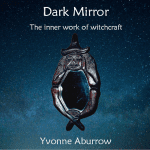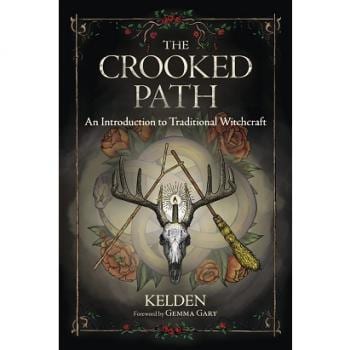Hello, beautiful creatures.
Long time no see, huh? I know I haven’t posted much lately. I could give a few different excuses for that, but honestly, the underlying issue is that, like so many of us, I’m worn out. I was going to open this post with some sort of disingenuous attempt at wit, but I just don’t have it in me right now. For lack of a better way of putting this, 2020 has been kicking my ass. Some of that is physical, but a lot of it is situational. Between the vacillating turns in the weather here in the Pacific Northwest, the attenuated post-solstitial nights, and the all-pervading anxiety brought on by the nonstop existential threats posed by both the global coronavirus pandemic and the creeping fascism of the slowly-disintegrating Trump administration, sleep and rest have been at a premium in our household. This, in turn, has eroded my ability to maintain my usual equanimity.
In other words, I’m tired and cranky.
I know I’m not alone in that. Like most folks, my practice isn’t at its best when I’m tired and cranky, and I’ve let a lot of the key elements of my practice slip while I focus on the items closer to the base of Maslow’s hierarchy of needs. All this fallow time hasn’t gone to waste, though. It’s given me a lot of time to think about stuff, which you all know leads straight to trouble. In particular, I’ve been ruminating on the recent resurgence of arguments against witchcraft and Paganism being used for anything “political.” I’m sure you can already deduce my previously extensively stated position on this topic, but I’d like to expand on that position just a little.
It’s been my experience that a lot of folks in the Pagan, polytheist, and magical communities—especially folks from, shall we say, certain culturally dominant demographic backgrounds—have a tendency to want to see magic as being synonymous with prayer, or meditation, or the power of positive thinking. These folks are often made deeply uncomfortable by the suggestion that magic isn’t any of those things… or rather, that any of those things can be magical, but that magic itself is something quite different. Magic is about making things happen. It’s about creating a change in the universe. That’s what it’s for.
Of course, if you’re someone who’s deeply invested in things being the way they are, all that talk of change is going to be pretty scary… but even if you’re not, the idea of change is still pretty scary for a lot of folks. Human beings crave conformity, consistency, and stability, and when someone comes in clamoring for rebellion, revolution, change, and chaos, that’s going to upset some folks. People are going to feel threatened by a suggestion that magic should be used to support protestors and to discourage or disempower forces of oppression, because that suggestion threatens their status-quo bubble.
The fact that people who feel that way then call themselves “witches” is, to me, a little puzzling… but then, part of my early exposure to witchcraft was through Leland’s Aradia, or the Gospel of the Witches, where Diana sends Aradia to Earth to instruct the witch cult on how to use witchcraft to literally destroy their oppressors. Viewed in that light, I think the good-vibes-only crowd can maybe make a little room for witches interested in bringing about change, witches tired of seeing Black people murdered by the government, witches tired of queer and trans rights being treated as a political football, witches tired of seeing children in cages.
Some of you may object that I’m bringing politics into Paganism and witchcraft. With all due respect, you’re entirely wrong. What I’m talking about here aren’t questions of policy, but of ethics. Politics is about how we negotiate power, specifically the power to set and enforce societal norms. By contrast, ethics is about the content and philosophical underpinnings of those societal norms. To put this simply, politics answers questions about laws and policies, things like “Should we raise taxes on people who make more than $200,000 a year?” or “Should we eradicate the electoral college?” Ethics answers questions about human and civil rights, such as “Are extrajudicial killings of Black people acceptable in our society or not?” and “Should transgender people have the same access to public space and societal participation as cisgender people?”
Honestly, the fact that I have to explain this is terrifying, because it means our society is willing to reduce the humanity of entire groups of people to a matter of debate. It means we’ve abandoned not only the concept of the rule of law applying to all persons equally, but the ethical structure on which those laws are theoretically based.
As I wrote to a friend of mine earlier today, I can be just as spooky-gothic as the next Luciferian witch, sorcerer, and sex magician, but none of that matters in the face of existential threats of this kind. All that matters is compassion: sympathy and concern for other people. We stand together or we fall together—as a society, as a culture, as a species—and compassion is literally the only thing that’s going to save us.
The trouble is, at this late stage in the game, I genuinely don’t know how to get people to have compassion if they don’t already. I can tell people they should care, I can even tell them why they should care, but I’m not equipped to be the Pagan community’s version of Chidi from The Good Place, much less a healer of hearts and minds. I cannot make people be compassionate. Indeed, the notion of forcing compassion on people seems a bit paradoxical, doesn’t it?
So here I am, the day before Halloween, looking at Election 2020 rolling towards us all like a roulette wheel made of candyfloss and gasoline, praying desperately that the wisdom and compassion of my fellow citizens is great enough to triumph over the nationalism, provincialism, racism, bigotry, fear, and hatred that have been the order of the day in the nation of my birth for the past four years.
I have hope. It’s a grim, determined sort of hope, but the alternative is despair, and I won’t give into that. I hope you won’t either.
Until next time, dear ones, be brave, be compassionate, and resist… and if you haven’t already, please vote. ♥
![We're all in the same storm together. [Photo by J W on Unsplash.]](https://wp-media.patheos.com/blogs/sites/790/2020/10/j-w-Ju-ITc1Cc0w-unsplash.jpg)

















